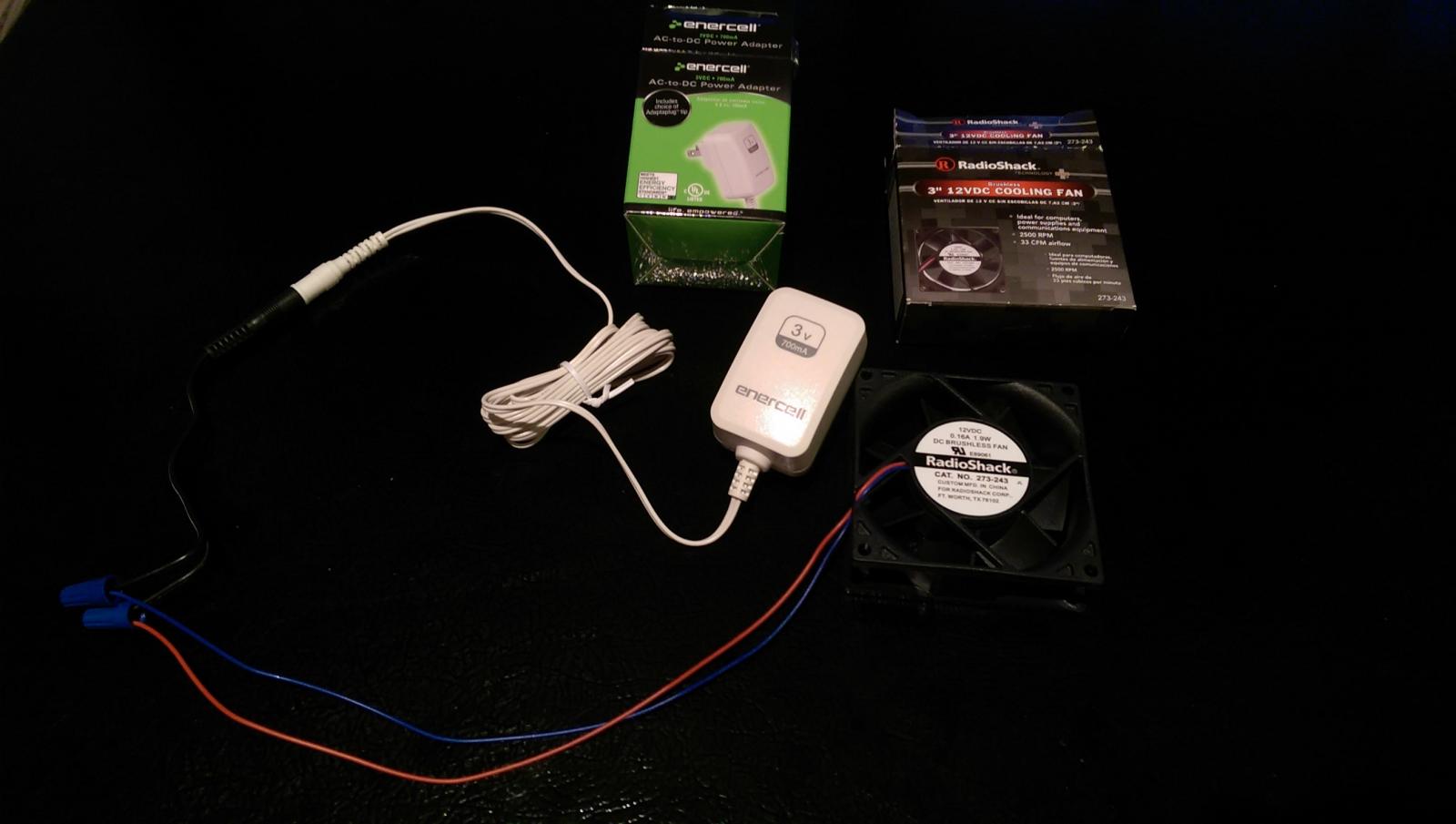redpat2061
Member
- Joined
- Feb 6, 2015
- Messages
- 10
- Reaction score
- 0
I built a tall collar for my keezer, so of course, the last foot of beer line gets warn and there is lots of head on my first pour. I bought a bilge fan
http://www.amazon.com/gp/product/B001O0DE9E/?tag=skimlinks_replacement-20)
and some pvc piping and used a 12V dc adapter i had lying around and followed a FAQ for cutting off the plug and wiring it direct to the bilge fan.
Worked great for a day, then the fan died and my beer got warm again. Turns out my 12V dc adapter was 500ma and the fan was trying to draw 2.5 a and this was bad (this is how much I DONT understand electricity).
So I read up on this and I think the internets are telling me that my voltage was right but my amperage needs to be equal to or greater than what the fan needs.
So I bought this: http://www.amazon.com/gp/product/B0023Y9EQC/?tag=skimlinks_replacement-20
So I wired it up just like the other one and... it doesn't work. Power is getting to the fan but instead of spinning like normal it's cutting in and out every second.
What is happening? Do I need exactly 2.5 amps to make this work?
View attachment 20150225_185710.mov
http://www.amazon.com/gp/product/B001O0DE9E/?tag=skimlinks_replacement-20)
and some pvc piping and used a 12V dc adapter i had lying around and followed a FAQ for cutting off the plug and wiring it direct to the bilge fan.
Worked great for a day, then the fan died and my beer got warm again. Turns out my 12V dc adapter was 500ma and the fan was trying to draw 2.5 a and this was bad (this is how much I DONT understand electricity).
So I read up on this and I think the internets are telling me that my voltage was right but my amperage needs to be equal to or greater than what the fan needs.
So I bought this: http://www.amazon.com/gp/product/B0023Y9EQC/?tag=skimlinks_replacement-20
So I wired it up just like the other one and... it doesn't work. Power is getting to the fan but instead of spinning like normal it's cutting in and out every second.
What is happening? Do I need exactly 2.5 amps to make this work?
View attachment 20150225_185710.mov
Last edited by a moderator:














































![Craft A Brew - Safale BE-256 Yeast - Fermentis - Belgian Ale Dry Yeast - For Belgian & Strong Ales - Ingredients for Home Brewing - Beer Making Supplies - [3 Pack]](https://m.media-amazon.com/images/I/51bcKEwQmWL._SL500_.jpg)











